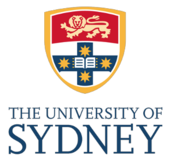Weighing in on recent reports alleging that tainted frozen berries sourced from China have led to illnesses in Australia, academics Hans Hendrischke and Wei Li believe that it is not likely that the incidents, if isolated, will reduce food exports from China. Hendrischke, a professor of Chinese Business and Management at the University of Sydney, and Li, a lecturer at the same institution, co-authored an article on the subject which was posted at The Conversation website (www.theconversation.com) on February 18. It appears beginning with the next paragraph unedited, under terms of the site’s republication guidelines.
 Hans Hendrischke is professor of Chinese Business and Management at the University of Sydney. He was educated at universities in Germany, Taiwan and Japan, and did postgraduate research at the Contemporary China Institute at the London School of Oriental and African Studies.Australian Prime Minister Tony Abbott has been forced to respond to calls for stricter food labeling and inspection of food imports, following a spate of Hepatitis A infections suspected of being linked to contaminated frozen berries. But it is not certain that either measure or other government action could have prevented the current contamination incident. The primary responsibility lies with the suppliers.
Hans Hendrischke is professor of Chinese Business and Management at the University of Sydney. He was educated at universities in Germany, Taiwan and Japan, and did postgraduate research at the Contemporary China Institute at the London School of Oriental and African Studies.Australian Prime Minister Tony Abbott has been forced to respond to calls for stricter food labeling and inspection of food imports, following a spate of Hepatitis A infections suspected of being linked to contaminated frozen berries. But it is not certain that either measure or other government action could have prevented the current contamination incident. The primary responsibility lies with the suppliers.
At this moment the public is still waiting for scientific results from laboratory tests on what exactly caused the infections. The only evidence so far is that all cases of infections are linked by the consumption of frozen raspberries imported from China by one Australian supplier.
The likelihood is that a contamination of what currently looks like a limited scale was caused by protocol or management failure relating to personal hygiene at the harvesting or processing stage, rather than systemic failure such as contaminated water supply that would affect larger batches of produce.
Government intervention works best to identify systemic issues such as chemical residues, which can be picked up by routine inspections, but is less effective when dealing with smaller scale contamination.
What Standards are in Place?
Both the Australian and Chinese governments have measures in place to detect and prevent food contamination. China has different food safety systems for domestic food and exported food. Export food safety standards are much more stringent than domestic ones. Food exports are overseen by the ministry-level General Administration of Quality Supervision, Inspection and Quarantine (AQSIQ) and its provincial branches. AQSIQ requires that exported food meet domestic Chinese standards as well as those of the importing company and country.
 We Li is a lecturer at University of Sydney Business School. In the past she has worked as a researcher on water conservation and renewable energy for the World Bank, the Chinese Ministry of Environmental Protection and Renmin University of China.AQSIQ can enforce radical changes in China’s food export policies. In 2002, for example, a major change in the procurement system for vegetable exports was made after spinach exported to Japan was found to contain excessive amounts of chemical residues. Chinese export firms were restricted to sourcing vegetable products from registered large-scale farms specializing in exports.
We Li is a lecturer at University of Sydney Business School. In the past she has worked as a researcher on water conservation and renewable energy for the World Bank, the Chinese Ministry of Environmental Protection and Renmin University of China.AQSIQ can enforce radical changes in China’s food export policies. In 2002, for example, a major change in the procurement system for vegetable exports was made after spinach exported to Japan was found to contain excessive amounts of chemical residues. Chinese export firms were restricted to sourcing vegetable products from registered large-scale farms specializing in exports.
The laboratory test currently under way will give an indication whether government failure is to blame or whether this was an isolated incident that was unlikely to be picked up by a government level inspection regime. If this was an isolated small-scale incident, it is the responsibility of the supplier to ensure that this cannot happen again.
The risk of small-scale contamination is high if one considers what degree of enforcement and monitoring is required to ensure that, for example, all fruit handlers have constant access to hygienic toilet and hand-washing facilities. For good reasons suppliers concentrate their processing on a small number of locations that can be fully supervised.
Foreign Influence
China’s food processing industry for exports was led and mainly developed by foreign-financed agribusiness. In the early days, foreign agribusiness companies from Japan and Taiwan, for example, provided local farmers with complete packages of production materials including seeds, pesticides and technical assistance. Foreign companies bring in not only technical skills, but also managerial skills and advanced management systems.
For Australian farmers this case of food contamination is a reminder that the very strict Australian food regulations protect their position in global markets, not least the Chinese market, and that any incident can have major consequences.
Australian producers have secured a reputation as reliable suppliers of clean and safe food. Australian fresh berries and other produce are at the apex of the Chinese food pyramid as products of unquestioned quality. At the second level of quality are Chinese food products destined for export and supervised by AQSIQ, and at the next level are products under the domestic regime of food supervision, which has just been declared a government priority for 2015.
Market Realities
China’s fruit and vegetable exports will continue to grow globally. China is moving away from low value-added manufacturing to high-value added sectors. Despite being labor intensive, fruit exports have a high added value, and have grown rapidly in China during the last few years. While only a small percentage of domestic production is exported, it is a sizable amount compared with export volumes of other countries.
In 2013, China’s total fruit product export exceeded US$4 billion. Major importing countries include Thailand, Malaysia, Russia, Japan and the Netherlands. Exports of fruit to Australia were relatively small at around 1% of the total volume of fruit exports.
Australian and Chinese fruit exports are linked, although they occupy different market segments. Australia has been a successful food-exporting nation, with a competitive advantage in high premium agricultural produce. On one hand, Australia is renowned as a producer of premium food and wine from its clean water, clean air and clean soil. On the other hand, Australia’s strong domestic food processing industry, which can manage food production and processes safely and effectively, has earned Australia global recognition for safe agricultural products.
Globalizing Australian agricultural services firms which specialize in areas such as implementing process safety management systems, supply chain management, data management solutions and computerized decision support tools have ample opportunities in improving safety performance and practices for their Chinese suppliers when extending their supply chains into China.
Taking Australian management and agricultural expertise to Chinese suppliers is also the most reliable and efficient way to secure the safety of food imports, as it is quite likely that incidents such as the frozen berry contamination are best prevented by active cooperation and supervision at managerial level.





